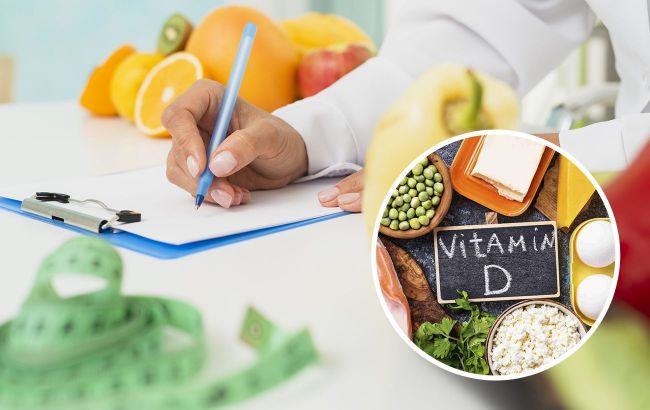Why you should not take vitamin D on empty stomach
 Why you should not take vitamin D on an empty stomach (Collage RBC-Ukraine)
Why you should not take vitamin D on an empty stomach (Collage RBC-Ukraine)
Taking vitamin D on an empty stomach is dangerous, but it shouldn't be done this way. It simply won't be absorbed, and it won't bring any benefit to your health.
RBC-Ukraine provides information on how to correctly take vitamin D, with reference to Wprost.
Why is vitamin D important
Vitamin D is extremely important for the body and performs numerous essential functions, including:
-
Necessary for proper Calcium absorption: Vitamin D is required for the correct absorption of calcium from the digestive tract, which is crucial for maintaining a normal level of this mineral in the body.
-
Assists in maintaining bone and teeth health: It helps support the health of bones and teeth by promoting mineralization.
-
Affects muscle functioning: Vitamin D influences the functioning of muscles, which is crucial for supporting muscle strength and stability.
-
Plays a crucial role in immune system regulation: It plays a vital role in regulating the functions of the immune system. Therefore, a deficiency in vitamin D can lead to an increased risk of infections and autoimmune diseases.
Vitamin D can be synthesized in the skin under the influence of sunlight. However, during the fall and winter, there is less sunlight, and insufficient exposure to solar radiation.
In the period from October to March, doctors recommend obtaining vitamin D from food sources (such as fish like eel, salmon, cod, herring, mackerel, mushrooms, egg yolks, cow's milk, and yellow cheese) or supplementing with vitamin D supplements.
Why vitamin D shouldn't be taken on an empty stomach
"Vitamin D dissolves in fats, so it is best absorbed and transformed into active vitamin D (the form the body can use) when taken with food containing fat. If there is no fatty food in the intestines along with vitamin D, the body is unable to process it, and the majority of the vitamin will pass through the digestive system and be excreted from the body. Therefore, the benefits will be minimal," explains Dr. Joshua Berkowitz.
According to the expert, the best fatty foods that support the breakdown of vitamin D in the body are butter, fatty fish, cheese, and meat. Even better is when we consume products that contain both fats and natural vitamin D simultaneously. These include fish oil, fatty fish such as trout, salmon, and herring, as well as mackerel, butter, and egg yolks.
As mentioned before, mushrooms are a good source of vitamin D. However, it is best to cook them with a small amount of vegetable or butter to obtain the necessary fat for optimal absorption of vitamin D from food.
Earlier, we discussed the vitamins the body needs in January.
This material is for informational purposes only and should not be used for medical diagnosis or self-treatment. Our goal is to provide readers with accurate information about symptoms, causes, and methods of detecting diseases. RBС-Ukraine is not responsible for any diagnoses that readers may make based on materials from the resource. We do not recommend self-treatment and advise consulting a doctor in case of any health concerns.

